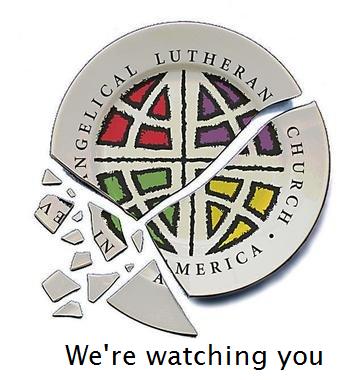Gaston church breaks with national organization over gay clergy
November 05, 2009 6:20 PM Diane Turbyfill
Same-sex relationships go against Scripture and morality, according to a letter mailed Monday by members of Grace Evangelical Lutheran Church in Bessemer City.
The congregation recently drafted the letter stating its disdain for a resolution passed by the Evangelical Lutheran Church in America.
“We are writing to express our disappointment with the recent Churchwide Assembly’s approval of the resolution to allow gay and lesbian pastors,” the letter states. “We also disapprove of the resolution to find ways for congregations to recognize same-gender relationships.”
The 2009 Churchwide Assembly of the Evangelical Lutheran Church in America voted in August to open the ministry of the church to gay and lesbian pastors and other professional workers living in committed relationships.
The action came by a vote of 559-451. The assembly also approved a resolution committing the church to find ways for congregations to “recognize, support and hold publicly accountable life-long, monogamous, same gender relationships,” according to a press release.
The actions changed the church’s policy, which previously allowed people who are gay and lesbian into the ordained ministry only if they remained celibate.
To express its disapproval, the congregation of Grace Evangelical has stopped sending financial contributions to the national organization.
Stopping the contributions could be just the first step for the congregation, according to Interim Pastor Elizabeth Toler.
Toler has served Grace Evangelical for more than a year.
The decision to draft the letter was made by the church’s council, but Toler said the document also expresses her personal opinion.
“It only makes sense to me that if I as a single heterosexual is called to lead a chaste, moral life anyone else is expected to live the same way, regardless of their sexual orientation,” said Toler.
Resolutions causing a stir in the church were approved by the Churchwide Assembly, a group of more than 1,000 members that meets every other year to make decisions for the national organization.
The issue of same-sex relationships in the church last surfaced at the assembly in 2005. Resolutions condoning such behavior were voted down during that gathering, according to Toler.
The 2007 assembly requested the matter be brought up again in August 2009.
Four resolutions were adopted by the assembly. All led to the change in policies that allow a person in a committed relationship to pastor a church, said John Brooks, director of ELCA News Service.
The responses have been a mixed bag, Brooks said.
“Those two documents have been causing some reaction,” said Brooks. “There are many congregations of the church that are very happy with the decisions that have been made.”
Reactions have been plentiful at the Synod Bishop Leonard Bolick’s office in Salisbury, according to spokeswoman Stephanie Grantham.
“People are on different sides of this, and people feel very strongly on both sides,” she said.
The regional office is choosing not to take a stance, but rather to try to support congregations and the national organization, Grantham said.
“We support the congregations in North Carolina and the ELCA,” she said. “We know we will get through this staying in conversations with one another and praying together.”
The Evangelical Lutheran Church has been in existence for 21 years, according to Brooks, and all member churches of the ELCA are expected to contribute to the organization. Brooks did not know the repercussions for ending those donations.
The decisions made in regards to same-sex pastors were not made hastily, he added.
“There have been people pushing for change in ministry policy,” said Brooks. “This is a long, long standing effort by people who felt the policy was discriminatory.”
About 30 people attend Grace Evangelical each week. Twenty-nine of them signed the letter speaking out against the recent resolutions.
Discussion of what to do next is under way, Toler said.
There has been talk of separating from the national organization, but that has not been finalized.
The local church intends to use other Lutheran material for Sunday school instruction beginning in January. Continuing to use materials from the ELCA could expose children to a change in morals, Toler said.
“At this time we are studying what we should do,” she said. “We feel that the authority of the Scripture of the Bible has been challenged by our national church organization.”
Brooks pointed out that congregations have the ultimate say on who they choose to lead their church. The new resolutions don’t change that freedom, he said.
But members of Grace Evangelical feel the change in policy points away from principle beliefs handed down through Scripture.
“As we understand these resolutions, they seem to contradict the ELCA’s previous policies on homosexuality,” the letter states. “The previous policy was, we firmly believe, based on Scripture and should not have been overturned.”
You can reach Diane Turbyfill at 704-869-1817.

No comments:
Post a Comment